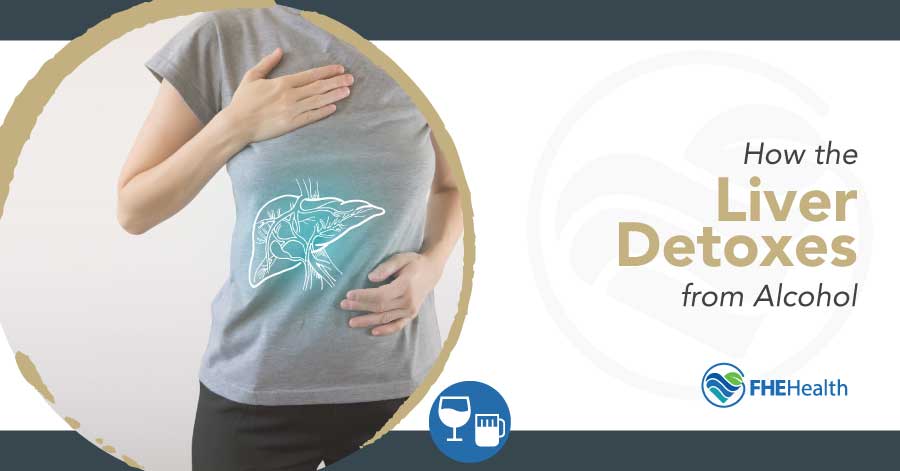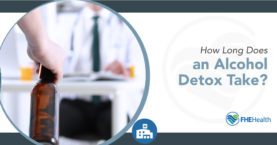
The liver is an extraordinary organ that is responsible for several important roles within the body. The liver stores vitamins, iron, and glucose breaks down old blood cells and converts stored sugars into usable sugar when the body’s sugar levels drop. The liver also cleanses blood and produces bile that’s critical in the digestive process. Consuming excessive amounts of alcohol adversely affects the liver and its ability to function correctly. Liver detox is advisable to restore liver and overall health.
Importance of the Liver When Discussing Alcohol Use
According to the National Institute on Alcohol Abuse and Alcoholism, long-term alcohol use is the most common single cause of illness and death from liver disease. The liver is where alcohol is metabolized. The liver requires water to function correctly—but alcohol consumption dehydrates the liver. When the liver does not receive sufficient amounts of water to function, it draws water from other parts of the body. When the liver functions for long periods of time without adequate hydration, a variety of liver issues can occur, including:
- Fatty liver
- Cirrhosis of the liver
- Alcohol hepatitis
How is the Liver Affected by Alcohol Use?
“Binge drinking” can permanently damage the liver and lead to liver toxicity. Binge drinking is defined as consuming eight or more drinks (for women) and fifteen or more (for men) in one sitting. In addition to binge drinking, chronic heavy drinking can harm the liver and cause permanent damage.
What are the Short-Term Effects of Alcohol Use?
When alcohol is introduced to the body, it takes approximately an hour for the liver to process and metabolize it. Each subsequent alcoholic drink takes longer and longer to metabolize. When the liver can’t keep up with the amount of alcohol consumed, the excess alcohol overflows into the bloodstream. When someone feels intoxicated, it is because the liver is over-taxed and alcohol is now circulating in their bloodstream.
What are the Long-Term Effects of Alcohol Use?
When the liver is chronically overworked by alcohol abuse, liver cells begin to break down. The damaged cells result in liver scarring, commonly referred to as liver cirrhosis.
As many as one in five heavy drinkers may eventually experience fatty liver disease. During this early phase of disease, the liver may become swollen and even feel sore. Once someone has reached this stage, medical and lifestyle interventions may be necessary to prevent permanent liver damage.
What are the Signs of Liver Damage from Alcohol Abuse?
Those who consume more than two drinks per day are at an increased risk of developing liver disease. Other risk factors, such as genetics or other illnesses can increase the risk substantially. People suffering from liver disease typically show the following symptoms:
- Jaundiced (yellowed) skin and eyes
- Leg and ankle swelling
- Dark urine
- Abdominal pain
- Nausea
- Easy to bruise
- Itchy skin
- Fever
- Weakness
- Loss of appetite
- Chronic fatigue
- Tar colored stool
Can the Liver Recover from Alcohol Use?
The liver is incredibly resilient. It is possible to reverse the effects of liver damage caused by excessive drinking. But, once changes to the fibers and cells of the liver occur, it’s impossible to fully repair the damage.
How Do You Detox the Liver?
Immediate abstinence from alcohol is the most important step towards repairing liver damage and restoring liver health. This is no small thing, however, for someone with a longstanding addiction to alcohol. In addition to the medical dangers of going “cold turkey,” they face the understandably scary prospect of a life without drinking. (If these circumstances sound all-too-familiar, see the below section on liver and alcohol treatment, which is the safest and smartest option.)
For a great many people, better liver health is possible when they take these steps:
1. Stop Drinking
The liver will never heal and repair itself as long as it is still processing alcohol. Reducing alcohol intake is not enough. Even small amounts of alcohol will continue to damage an unhealthy liver. Quitting the bottle altogether is best.
2. Kick the Other Drugs/Addictions
Like alcohol, other substances like cigarettes or recreational drugs can impede the process of liver repair. Their elimination is an important component of liver detox.
3. Eat Healthy Foods
Processed foods, saturated fat, and sugar can put a strain on the liver. The path to restoring the liver should include cutting foods from the diet that are more difficult for the liver to process. Increasing fresh fruit and vegetables in the diet is healthier for the liver as well as the rest of the body. Foods that are known to cleanse the liver are:
- Apples
- Beetroot
- Garlic
- Green, leafy vegetables
- Lemons
- Tumeric
- Walnuts
4. Exercise Regularly
Moving the body every day can prevent obesity, improve the immune system, and reduce the risk of liver cancer. Plus, exercising for at least twenty minutes each day improves overall wellness.
5. Avoid Toxins
Be mindful of over-the-counter and prescription medications, as they can put stress on the liver. Limit exposure to chemical sprays such as spray paint, pesticides, and any other form of aerosol spray. Clean, toxin-free bodies are healthier bodies.
How Long Does It Take for Your Liver To Detox?
The amount of time that it takes for a liver to detox depends on the severity of the liver damage. A few signs that a liver detox is working are:
- Headaches. When a daily routine has changed and bad habits (smoking, alcohol, etc.) are out the door, withdrawal headaches can occur.
- Fatigue. A body must exert significant energy to excrete toxins that have built up over time. Expect to feel more fatigued and be sure to sleep for at least eight hours per night.
- Nausea. A change in diet and lifestyle can be an adjustment for sensitive stomachs.
- Cravings. Healthy diet and lifestyle choices can trigger cravings for those former habits.
- Skin Issues. When the body begins to force toxins out of the body, acne, psoriasis, and eczema can appear.
Liver detox that occurs too quickly can be harmful. People who experience flu symptoms and severe vomiting may be detoxing too rapidly.
What is the Best Treatment for Liver Health?
The most important step for liver health is to stop consuming alcohol. People who drink alcohol and have become alcohol-dependent may struggle to quit drinking. Once anyone receives a diagnosis of liver disease, they should seek immediate medical support to quit alcohol. For those who have been heavy drinkers over an extended period of time, quitting without medical support can be dangerous and harmful to the body. Consult a doctor or substance abuse professional about what liver detox method may be right for you. With alcohol detox and treatment, even someone who can’t imagine a life without alcohol can achieve an alcohol-free and healthy liver.









